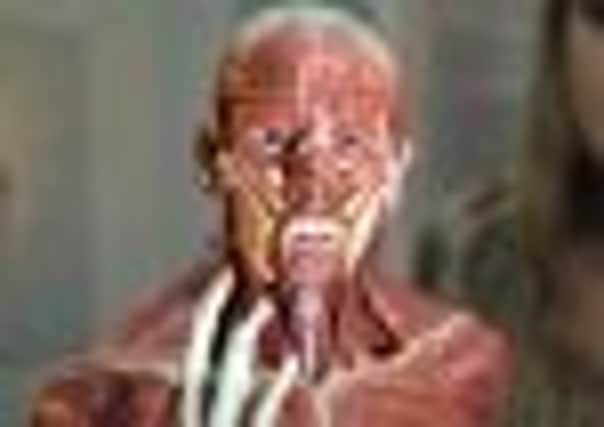Dawn Morrison: Getting a head start in the name of medical research


When it comes to thinking about what happens to our bodies after death, it is something many of us – understandably – are keen to push to the back of our minds. However, the news that rugby legend and BBC presenter John Beattie is to leave his brain to neuroscience has pushed the issue into the spotlight and may even encourage people to follow in his footsteps.
The 54-year-old has opted to give up his grey matter for medical research so that doctors can study the effects of the numerous heavy knocks to the head he sustained during his career.
Advertisement
Hide AdAdvertisement
Hide AdMr Beattie took the decision having heard new evidence suggesting rugby players’ brains may suffer the same long-term injuries sustained by boxers, and he feared that injuries he suffered while playing the sport – including one tackle which left him “seeing stars” – may have caused unseen damage.
Medical science has always needed bodies for cutting-edge research yet, when it comes to the Capital’s reputation for such studies, many people still think immediately of murderers Burke and Hare cashing in on the demand for corpses.
So should people still be concerned with what happens to their body after they die, or should more of us consider the long-term benefits of aiding medical research?
Gordon Findlater, director of anatomy at Edinburgh Universitys, said: “This kind of research is invaluable and we couldn’t function as a medical school without them.
“If someone has a very difficult medical procedure to carry out, the chance to practise on a body rather than a patient is a great opportunity.”
Research using human body parts has continued to develop since it was permitted by a change in the Anatomy Act in 2006.
There had been a drop in the number of people donating their body to medical science, thought to be because changes to the rules meant written consent from the deceased was required rather than just the say-so of the family.
But Mr Findlater said there appeared to have been an increase in those leaving their body behind in recent years.
Advertisement
Hide AdAdvertisement
Hide Ad“I would say, generally speaking, supply is meeting the demand,” he said. “We have held our own because word does seem to be out that we do require bodies and obviously that contributes to our overall knowledge.”
Human tissue, including brains and spinal cords, are vital for groundbreaking research into conditions such as Alzheimer’s and Parkinson’s.
Since changes in the law came into force, there has been a growing need for human tissue and several charities now run separate “brain banks”.
The charity Spinal Research funds medical research to develop reliable treatments for paralysis caused by a broken back or neck.
Director of research Mark Bacon said: “By comparison to some other diseases, we have only just started this research because people had believed it was impossible to repair the central nervous system. The support we receive tends to be from someone who has a spinal cord injury themselves, or someone close to someone with a spinal cord injury. Others do not seem to recognise it as something that can happen to them.
“People who sustain spinal cord injuries could live another 30 or 40 years and there is an economic argument for getting more support for research because giving someone back the use of their hand, or ensuring that they don’t require 24/7 care, makes such a huge difference.”
Alzheimer’s Research UK is one charity making use of brain banks.
Between 58,000 and 65,000 people are believed to suffer from the degenerative condition and the desire to make breakthroughs on its treatment is huge. Alzheimer’s Research UK carries out research on the brains of people suffering in various stages of dementia, but also on those of patients considered to have had healthy brains.
Advertisement
Hide AdAdvertisement
Hide AdThe charity’s head of research, Dr Simon Ridley, said: “Brain donation schemes are vital for dementia research, providing scientists with the brain tissue they need to gain a better understanding of diseases such as Alzheimer’s.
“The more we can understand how these diseases affect the brain, the closer we can get to developing new and effective treatments, and donated brain tissue can play a key role in this process.”
It may seem strange but perhaps if our focus switched from the ghoulish to the desired end result – developing the techniques and skills to keep patients alive or improve their quality of life – more of us, like John Beattie, would consider donating our body after we die.